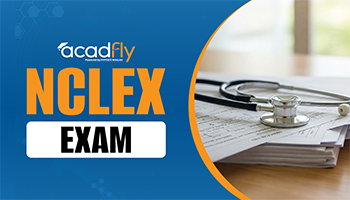

Effective Study Plans for PTE Preparation: Preparing for the Pearson Test of English (PTE) requires a strategic and effective study plan. The PTE is a widely accepted English proficiency test for those looking to study abroad. Crafting an effective study plan for PTE preparation involves understanding the test structure, practicing regularly, and using the right resources.
This article provides a comprehensive guide on effective study plans for PTE preparation, offering practical tips and strategies to help you achieve a high score.
Understanding the PTE Exam Structure
The PTE exam consists of four sections: Speaking, Writing, Reading, and Listening. Each section tests different aspects of your English proficiency and requires targeted preparation. Understanding the structure and format of each section is crucial for effective study planning.
|
PTE Exam Structure |
||
|
Section |
Description |
Time Allocation |
|
Speaking |
Includes tasks like read aloud, repeat sentence, and describe image |
30-35 minutes |
|
Writing |
Includes tasks like summarizing written text and essay writing |
50-60 minutes |
|
Reading |
Includes tasks like multiple-choice questions, re-order paragraphs |
29-30 minutes |
|
Listening |
Includes tasks like summarizing spoken text, multiple-choice questions |
30-43 minutes |
Creating an Effective Study Plan
1. Assess Your Current Level
Begin by taking a practice test to assess your current level of English proficiency. This will help identify your strengths and areas for improvement, allowing you to focus your study efforts more effectively.
2. Set Clear Goals
Set clear and achievable goals for your PTE preparation. Determine the score you need for your desired study abroad program and break down your goals into smaller, manageable tasks.
3. Allocate Study Time
Create a study schedule that allocates specific time slots for each section of the PTE exam. Ensure you have a balanced approach, dedicating enough time to practice speaking, writing, reading, and listening skills.
4. Use Quality Study Materials
Use reliable and high-quality study materials, including PTE preparation books, online courses, and practice tests. These resources provide valuable insights into the exam format and offer ample practice opportunities.
5. Practice Regularly
Regular practice is key to improving your PTE scores. Engage in daily practice sessions, focusing on different sections each day. Use timed practice tests to simulate the actual exam conditions and improve your time management skills.
6. Seek Feedback
Seek feedback on your practice tests and writing tasks from teachers, peers, or online forums. Constructive feedback helps identify areas for improvement and fine-tunes your preparation strategy.
7. Stay Consistent and Motivated
Consistency is crucial in your PTE preparation journey. Stay motivated by tracking your progress and celebrating small achievements. Join study groups or find a study partner to keep yourself accountable.
Sample Study Plan for PTE Preparation
A balanced weekly study plan includes daily practice for each PTE section, full-length practice tests, feedback sessions, and rest days to ensure comprehensive preparation and effective time management.
|
Sample Study Plan for PTE Preparation |
||
|
Day |
Activity |
Time Allocation |
|
Monday |
Practice Speaking tasks |
1 hour |
|
Tuesday |
Practice Writing tasks |
1 hour |
|
Wednesday |
Practice Reading tasks |
1 hour |
|
Thursday |
Practice Listening tasks |
1 hour |
|
Friday |
Take a full-length practice test |
2 hours |
|
Saturday |
Review practice test results, seek feedback |
1.5 hours |
|
Sunday |
Rest and relaxation |
- |
Section-Wise Preparation Tips
Speaking Section
-
Practice Regularly: Engage in daily speaking practice, focusing on clarity, pronunciation, and fluency.
-
Use Online Tools: Utilize online tools and apps that offer speaking practice and instant feedback.
-
Record Yourself: Record your responses to practice tasks and listen to them to identify areas for improvement.
Writing Section
-
Understand Task Requirements: Familiarize yourself with the specific requirements of each writing task.
-
Practice Summarizing: Practice summarizing written texts within the word limit and time constraints.
-
Essay Writing: Practice writing essays on a variety of topics, focusing on structure, coherence, and grammar.
Reading Section
-
Develop Skimming Skills: Practice skimming and scanning techniques to quickly identify main ideas and details.
-
Answer Practice Questions: Engage in regular practice with multiple-choice questions and re-order paragraphs.
-
Improve Vocabulary: Enhance your vocabulary by reading a variety of texts and noting down new words.
Listening Section
-
Active Listening: Practice active listening by summarizing spoken texts and answering comprehension questions.
-
Use Subtitles: Watch English videos with subtitles to improve your understanding of spoken English.
-
Take Notes: Practice taking notes while listening to lectures or conversations to capture key points.
Conclusion
Creating an effective study plan for PTE preparation involves a strategic approach, consistent practice, and the use of quality resources. By understanding the exam structure, setting clear goals, and following a structured study schedule, you can significantly improve your chances of achieving a high PTE score. For personalized guidance and comprehensive support in your study abroad journey, AcadFly offers expert assistance to help you navigate the PTE preparation process and achieve your academic goals.
Frequently Asked Questions
1. How can I assess my current level for PTE preparation?
2. What are some effective resources for PTE preparation?
3. How can I improve my speaking skills for the PTE exam?
4. How can AcadFly assist with PTE preparation and studying abroad?









